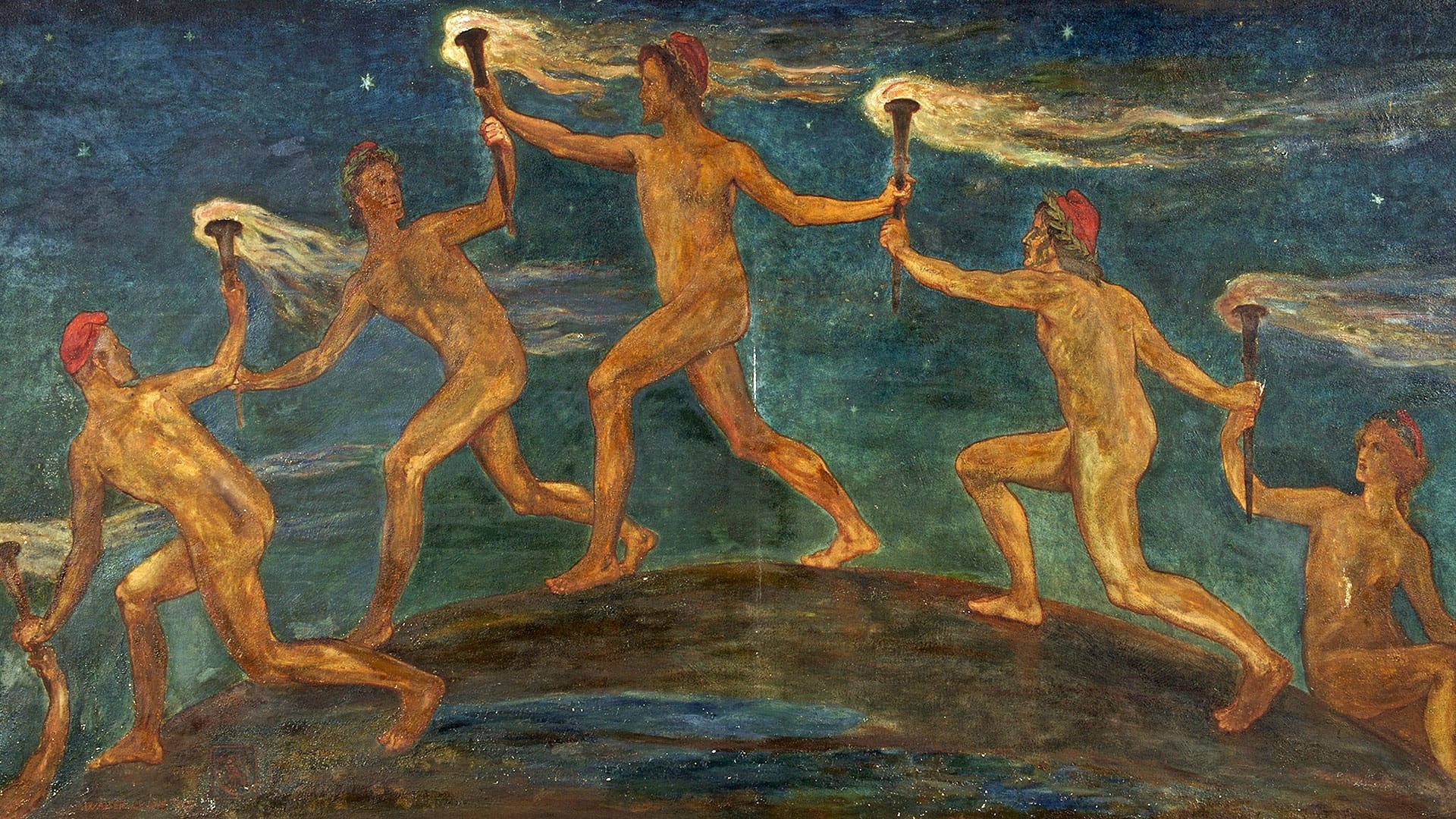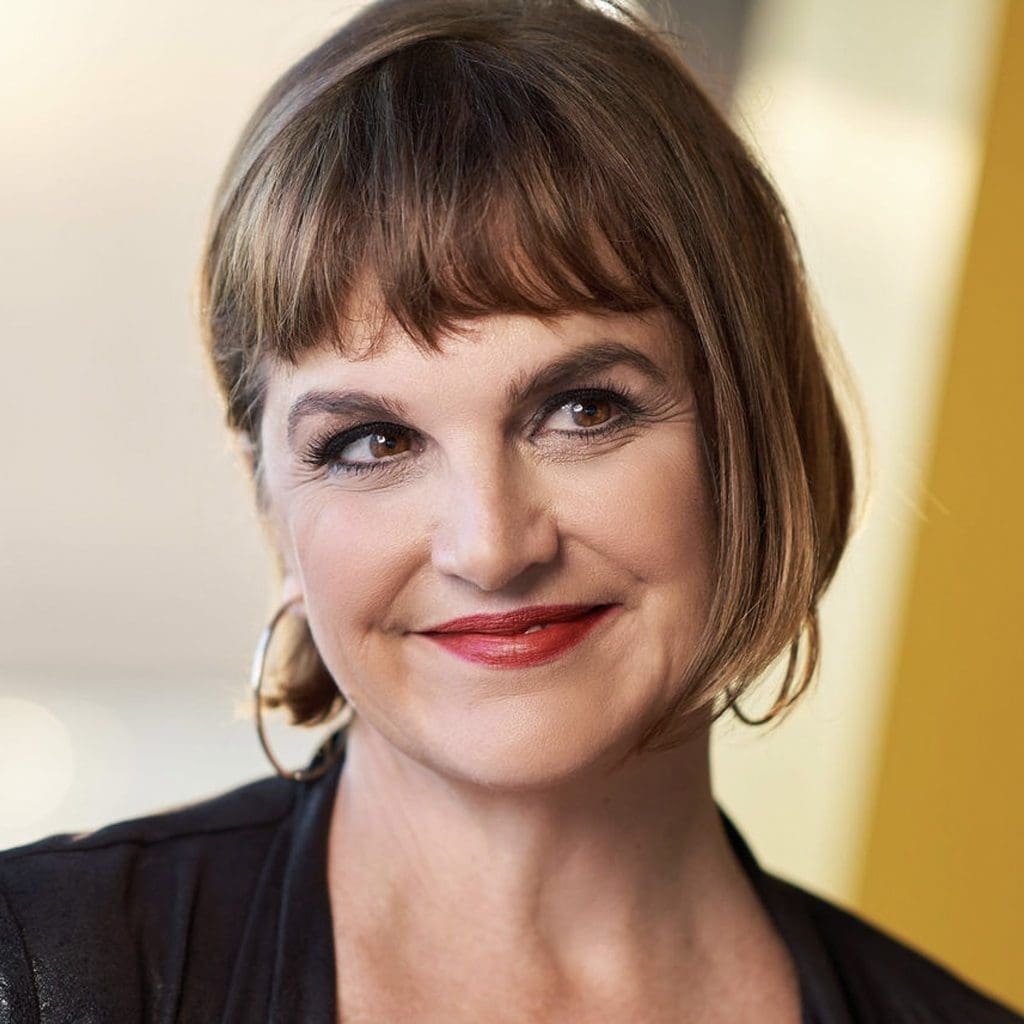O
On the afternoon my father took the Alzheimer’s cognitive assessment, my mother felt despair. The hopelessness was compounded by being treated coldly in English, not her native language. Although Florida health care was much more advanced, in Puerto Rico she and my father had been treated as human beings, not solely as caretaker number one and patient number two. At least she would know quickly, she consoled herself, because the tester could make a quick determination.
Few things scared my mother more than my father receiving an Alzheimer’s diagnosis. He already had Parkinson’s. But, despite the tiresome travel to the United States for treatment, my father’s mobility impairment, and the vicissitudes of chronic illness, they had settled into a life of rich companionship with each other and their friends. She knew Alzheimer’s would end a life she cherished.
The receptionist did not look up as she dismissed my parents, saying the results would be sent to them in a couple of weeks. Distraught at the prospect of more anxious waiting, my mother pushed my father’s wheelchair toward the parking elevator. Then she saw the Puerto Rican doctor who had administered the test and with whom she had had a pleasant exchange before my father went in. He walked toward her at a fast pace to tell her, “Don’t worry, he does not have Alzheimer’s.” It has been over fifteen years since the test, and ten since my father passed away, but my mother is still moved to tears when she recalls that the doctor broke the rules for them.
There is a conventional narrative about authority and obedience in such circumstances. In polite society everyone should agree authority is necessary to maintain order. If you care about order, you will follow rules. Only chaos follows if we disobey. Additionally, questioning how a particular rule may fit into the larger conceptual framework devised by an entity, even if done politely, is rude, unnecessary, and puts the person whose job is only to enforce the rules in a difficult position.
There is only one thing wrong with this narrative. It is false. It makes power and authority interchangeable, untethering the rationale for rules and laws from their roots. It makes people the objects of a hierarchy in which there is no space for individual dignity, conscience, or even love. It ossifies structures, discourages innovation, removes all vestige of agency from the person who is enforcing the rules, and ultimately drowns the spirit of change that led us to some of the greatest civil rights advances of our time.
Power and authority were interchangeable in much of the ancient world’s governing structures. The argument that followed was that without order there would be chaos and without power there would be no order. This rationale was largely based on a concept described by Neoplatonists as the great chain of being. Put simply: Laws come from the gods. Gods give the laws to rulers. Rulers rule, and the rest of us must obey.
Rulers in these cultures, occupying the liminal space between the gods and the earth, often become quasi-gods. Think of the pharaohs in Egypt who interpreted the will of the gods and decreed rules accordingly, or the early emperors in Japan who were also shamans. Fast-forward to the sixteenth century, when the concept of the king’s divine right permeated ideas of governance. In one of its most extreme forms, this philosophy acquired the character Jacques de La Guesle, procurator general of France, described in the sixteenth century when he asked Parliament to condemn a Catholic priest who upheld the authority of the pope. He said:
Sirs, the authority of the king is sacrosanct, ordained by God, the principal work of His Providence, the masterpiece of His hands, the image of His sublime majesty and proportionate to His immense grandeur, so as to bear comparison of the creature with the Creator. . . . For, just as God is by nature the first King and Prince, so is the King, by creation and imitation, God of all on earth.
In many totalitarian countries, to solidify authority and demand blind obedience, autocrats have adopted the quasi-god narrative and an equally rigid structure of ruling. Disobedience and defiance are punished, brutally at times. Kim il Song was raised and worshipped as a demigod. During Fidel Castro’s first speech before the nation, a white dove descended and perched itself on his shoulder, remaining there for over an hour. His followers cast the incident as an anointment, while his henchmen converted the island into a gulag.
One could argue that the interchangeability of power and authority saw one of its most devastating incarnations in the Nazi regime, a regime that also developed a pseudo religious narrative followed with fervour and blind obedience. After the world learned the horrors of the Jewish extermination camps, the question of authority, power, and obedience became the subject of intense debate and studies across many disciplines.
Although the Nuremberg trials that followed raised poignant questions about authority and power, for many the personification of the debate about authority, obedience, and culpability took place in 1962, in Israel, during the Adolf Eichmann trial. Eichmann, a Nazi who played a central role in the deportation of over 1.5 million Jews to killing sites, argued “that he was a low-level functionary following orders and that he should not be held accountable for the crimes of his superiors.”
It was during Eichmann’s trial that Hannah Arendt coined the phrase “the banality of evil.” Fellow intellectuals such as Gershom Scholem theorized, however, that “she had failed to reckon with the raw pleasure that playing God over others could afford, and so had overemphasized the role of systemically enforced thoughtlessness in preparing individuals to execute enormous crimes.” Nevertheless, the idea that the average man or woman could turn, rather seamlessly, into a mass murderer occupied the modern imagination.
Although Arendt may have deserved some criticism for her views, one of the questions that followed is relevant to the modern discourse on authority and obedience. That is, what was the role that ordinary Germans played in the Holocaust? Undeniably, many factors contributed to the murder of millions of Jews, including the politics of disgust. However, studies also suggest the large-scale annihilation was aided by the assembly line mechanisms developed during the Industrial Revolution and a highly efficient bureaucracy. The fragmentation of tasks, it was argued, made efficiency possible; not only did it objectify the victims, but fragmentation may also have prevented the bureaucrats from associating their discrete task with the larger project or raise questions about potential personal responsibility and culpability. Although this theory has been questioned by Holocaust historians, there is evidence to suggest that it was not only blind obedience or Nazi fervour that led to the Holocaust. It was also apathy and disassociation.
One thing is certain. After World War II many nations agreed that the devastation the war had brought merited a different way to frame how the world thought about authority and power. The discussions that ensued created a new framework eventually promulgated as the Universal Declaration of Human Rights, where the provenance of rights was tethered to our human nature. Authority was legitimate only if it respected that foundational notion.
The complex philosophical, historical, and legal deliberations that took place while drafting the declaration are spellbindingly narrated in Mary Ann Glendon’s A World Made New, a book that she starts by stating, “Politics, it has been said, is ‘the arena where conscience and power meet, and will be meeting until the end of time.’ Conscience so often fares poorly in such encounters that we celebrate the occasions when Power gives more than a tip of the hat.” In her account, Glendon touches on the religious and philosophical theoretical underpinnings of the legal frameworks that resulted in the Universal Declaration of Human Rights Preamble, an introduction to the declaration largely credited to the Lebanese philosopher Charles Malik. His articulation of rights, now commonplace in human rights parlance, was revolutionary for the time: “Recognition of the inherent dignity and of the equal and inalienable rights of all members of the human family is the foundation of freedom, justice and peace in the world.”
This framework decidedly rejected the idea that power and authority are interchangeable. On the contrary, it recognized that inherent to our dignity is that we are born with certain rights. Further, because the state does not grant our rights, the state cannot take them away. The state exists to protect those rights. Therefore, the human person is not part of a rigid hierarchical structure that demands obedience from its subjects.
Although the modern idea of human rights had “a period of gestation lasting a millennia,” scholar Paolo Carozza argues its birth resulted largely from disputes that emerged in the sixteenth century between authorities in Spain and a Spanish Dominican monk Bartolomé de Las Casas.
Las Casas was eighteen years old when he first came to the New World. He then returned to Spain, where he became a priest and studied canon law, which gave him the basis for a conceptual framework that he would later use to argue in favour of the rights of the indigenous people.
In 1509 Las Casas was sent to Hispaniola, where, like most other Spanish colonists, he lived in an encomienda, a tract of land where native people were forced into labour, often enduring brutal conditions. Although Las Casas was exposed to the Order of Preachers’ opposition to slavery (a religious order later called the Dominicans), he remained unconvinced he should not have slaves until he underwent a profound conversion in 1514, when he also joined the Dominicans.
Las Casas proceeded to free his slaves and devoted his life to securing the humane treatment of the Indians. His advocacy escalated, and when Las Casas refused to hear the confession of Spaniards who owned slaves, he was accused of treason. In 1550 the emperor called a panel of jurists and theologians to hear the arguments made by Las Casas and his intellectual adversary, Juan Ginés de Sepúlveda. What followed were a series of debates in Valladolid in 1550 and 1551, in which Las Casas drew from law, philosophy, theology, and his own experience in the New World to argue for equality, for respect for the conscience of the natives, and against coercion. In this way, he engaged in the same dynamic used in the twentieth century, where the articulation of human rights borrowed not only from many of the same disciplines Las Casas invoked but also from the personal experiences of those who witnessed the atrocities committed against fellow human beings during World War II. (To sketch this story of Las Casas, I relied heavily on Carozza’s terrific piece “From Conquest to Constitutions: Retrieving a Latin American Tradition of Human Rights.”)
Notably, Las Casas’s articulation of the rights of the Indians essentially blended a language of natural rights to Thomas Aquinas’s theories. Aquinas, for his part, had borrowed from St. Augustine’s articulation of just and unjust laws, which many modern civil rights leaders, like Martin Luther King Jr., used extensively to articulate not only the justification but also the moral obligation to engage in civil disobedience.
Advocates for justice from Las Casas to King showed that principled stances could triumph only if addressed in every sector. Note that Las Casas not only argued before the emperor, but he also refused the sacrament of confession to ordinary Spaniards who still had slaves. Note that in King’s “Letter from Birmingham Jail,” not only does he challenge the existing governance structure, but after recalling the plight of the Jews in Babylonian captivity, the martyrdom of the early Christians, and the atrocities of the Nazi regime, King exhorts Americans standing on the sidelines to join him:
I must make two honest confessions to you, my Christian and Jewish brothers. First, I must confess that over the past few years I have been gravely disappointed with the white moderate. I have almost reached the regrettable conclusion that the Negro’s great stumbling block in his stride toward freedom is not the White Citizen’s Councilor or the Ku Klux Klanner, but the white moderate, who is more devoted to “order” than to justice; who prefers a negative peace which is the absence of tension to a positive peace which is the presence of justice; who constantly says: “I agree with you in the goal you seek, but I cannot agree with your methods of direct action”; who paternalistically believes he can set the timetable for another man’s freedom; who lives by a mythical concept of time and who constantly advises the Negro to wait for a “more convenient season.” Shallow understanding from people of good will is more frustrating than absolute misunderstanding from people of ill will. Lukewarm acceptance is much more bewildering than outright rejection.
When we read about acts of injustice such as these, we can imagine ourselves in heroic terms. However, hindsight, as we are told, is twenty-twenty. In the comfort of our homes, with a rested mind and a full belly, when presented with clear moral choices, it is easy to be a better version of ourselves. But if we are truthful, we must admit it is rare to have the ability to see so clearly when we are confronting individual human suffering. And, in the modern world, it is difficult to tear ourselves from our daily distractions to push back on small rules that do not make sense to us. We human beings are not inclined naturally toward disobedience, even when morally justified. If we are honest, we must acknowledge our discomfort with becoming or being perceived as a troublemaker. If we examine our actions, we will find that it is disturbingly easy to fall into conformity.
In the modern world, it is difficult to tear ourselves from our daily distractions to push back on small rules that do not make sense to us. We human beings are not inclined naturally toward disobedience, even when morally justified.
Conformity, it turns out, is our natural state. It’s part of what psychologists who study morality call “moral foundations.” Bestselling author Jonathan Haidt explains in his seminal book The Righteous Mind: Why Good People Are Divided by Politics and Religion that these foundations can be identified in every studied human culture and can be compared to taste buds. We all have taste buds; each culture favours some tastes over others. One of those moral-foundation pillars or taste buds is respect/authority. A rich body of research across disciplines has established that humans are inclined to fall in formation to conformity. “We often change our attitudes and behaviors to match the attitudes and behaviors of the people around us,” writes Jerry Burger. In short, setting ourselves apart from the group does not come naturally.
So what are we called to do? After all, as Rabbi Jonathan Sacks eloquently puts it, “God endorses not might, but right. . . . Religion becomes not a justification, but a critique of power.”
Deifying leaders curtails freedom, diminishes human dignity, makes objects of human beings. That is clear. But deifying rules, unjustified regulations, and our bureaucracies can be just as dangerous.
Deifying leaders curtails freedom, diminishes human dignity, makes objects of human beings. That is clear. But deifying rules, unjustified regulations, and our bureaucracies can be just as dangerous.
Admittedly, it is difficult to discern which rules to obey, which to challenge, and which ones to disobey altogether. But if you look at these three questions as an arc, they outline the natural progression of human growth. When we are children, we follow the rules without question. As teenagers, in the process of individuating, we are bound to challenge rules, sometimes without cause. (Or, having had three teenagers, I am inclined to say “most of the time without cause.”) But as adults we can discern which rules make sense and which ones do not. But to stop deifying rulers and rules is to realize that the question of authority and obedience comes to viewing ourselves not as isolated beings but in relation to others around us. In short, discerning which rules to follow means that we must stop deifying the false gods, including ourselves.
At the root of the legitimacy of a rule lies a fundamental question: What god does this rule serve? Does it serve the god of order and control, the god of self-service, or the god of vanity and convenience? (These gods I know well, for I have served them all.) And, if I knowingly challenge a rule, what purpose does it serve? Am I behaving as a self-absorbed teenager if I defy it? Do I find it inconvenient to defy a rule because it will take time and effort? Does this rule obey the substance of genuine love for one another?
An experienced and compassionate doctor—like the one who was kind to my mother—understands these questions well. Hospital rules should be in the service of order, but obeying for the sake of order alone can be contrary to the higher purpose of medicine to serve human beings. The patient is not only his illness or a diagnosis. The patient is a human being whose illness is also his loved one’s illness. To serve the patient is also to serve the caregiver.
King and Las Casas knew the legal frameworks of their times did not honour the sacredness of the fellow humans they served. Instead, the rules—distractingly robed in religion and government—existed only to serve the gods of oppression and hatred. After World War II, humankind recognized that even individual, fragmented tasks performed in the hierarchy dictated by a bureaucracy could result in a picture so horrifying that each individual rule merited thought and reflection.
In short, the hypnosis that can be caused by bureaucracy can be broken only when we truly reflect on whether the rules serve the idea that all human beings are made in the image of God and are sacrosanct. Authority, power, and rules are experienced differently by the believer. A good troublemaker gets that and acts accordingly.



